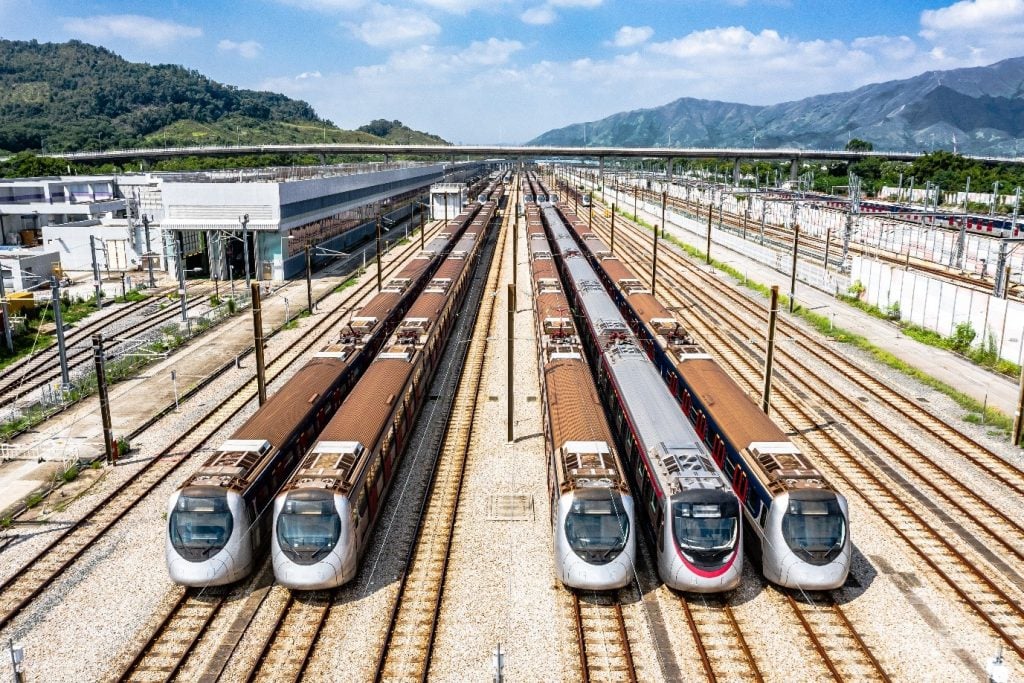Rolling stock—comprising locomotives, passenger cars, freight wagons, and other railway vehicles—is the lifeblood of the rail industry. These assets are crucial for the transportation of goods and passengers, and their upkeep is essential for ensuring safety, efficiency, and reliability. Regular maintenance of rolling stock not only prolongs the lifespan of these vehicles but also enhances operational performance and reduces the risk of costly breakdowns.
In this article, we’ll explore the critical role of rolling stock maintenance, highlight some of the leading providers in the industry, and explain why rail maintenance, including rolling stock upkeep, is vital for sustaining robust and safe railway operations.
Why Rolling Stock Maintenance is Essential
Rolling stock is subject to extensive wear and tear due to continuous use, varying loads, and challenging operating conditions. Maintenance is crucial to:
- Ensure Safety: The most important reason for rolling stock maintenance is safety. Neglecting maintenance can lead to serious accidents, such as derailments or brake failures. Regular inspections and repairs are vital to detect and fix issues before they escalate into safety hazards.
- Enhance Operational Efficiency: Well-maintained rolling stock operates more efficiently, leading to smoother rides, reduced fuel consumption, and lower operating costs. Efficient trains are also less likely to experience delays, which is crucial for maintaining schedules and customer satisfaction.
- Extend Vehicle Lifespan: Rolling stock represents a significant investment. Regular maintenance helps extend the life of these vehicles, delaying the need for expensive replacements and maximizing return on investment.
- Minimize Downtime: Unexpected failures can cause significant disruptions in rail services, leading to delays, cancellations, and additional costs. Preventive maintenance minimizes the likelihood of breakdowns, ensuring that trains are available when needed.
- Compliance with Regulations: Rolling stock must comply with stringent safety and operational regulations. Regular maintenance ensures that vehicles meet these standards, avoiding penalties and legal issues while maintaining a strong reputation.
FOR INFORMATIVE CONTENT VISIT.. : Christmas gifts
Key Aspects of Rolling Stock Maintenance
Rolling stock maintenance involves various activities, including:
- Routine Inspections: Regular checks of critical components such as brakes, wheels, axles, and electrical systems to ensure they are in good working order.
- Cleaning and Refurbishment: Keeping interiors and exteriors clean and up-to-date to improve the passenger experience and maintain vehicle aesthetics.
- Overhaul and Repair: Replacing or repairing worn-out parts, upgrading systems, and ensuring that the rolling stock is in optimal condition.
- Monitoring and Diagnostics: Using advanced technologies like sensors and data analytics to monitor the condition of rolling stock in real-time, enabling predictive maintenance.
- Compliance Testing: Conducting regular tests to ensure that rolling stock complies with safety regulations and operational standards.
Leading Providers of Rolling Stock Maintenance
Several companies specialize in rolling stock maintenance, offering services that ensure the safe and efficient operation of railway vehicles. Here’s a look at some of the top providers in the industry:
- Wyss&Lila
- Specialty: Wyss&Lila is a leading provider of comprehensive rail maintenance services, including rolling stock maintenance. They offer a wide range of solutions, from routine inspections to full overhauls, ensuring that locomotives, passenger cars, and freight wagons operate safely and efficiently. Their focus on innovation and technology allows them to deliver top-notch maintenance services that reduce downtime and extend the lifespan of rolling stock.
- Alstom
- Specialty: Alstom is a global leader in the transportation sector, offering extensive maintenance services for rolling stock. They provide complete lifecycle management, including preventive maintenance, repairs, and upgrades. Alstom’s expertise in train technology and maintenance solutions ensures that railway operators can rely on their rolling stock to perform at its best.
- Siemens Mobility
- Specialty: Siemens Mobility offers cutting-edge maintenance services for rolling stock, combining traditional practices with digital innovations like predictive maintenance and data-driven diagnostics. Their services help railway operators reduce maintenance costs, improve safety, and enhance the reliability of their fleets.
- Bombardier Transportation (now part of Alstom)
- Specialty: Bombardier has a long history in the rail industry, particularly in the design and maintenance of rolling stock. Now part of Alstom, their maintenance services focus on extending the lifespan of vehicles and optimizing performance through advanced engineering solutions and comprehensive support.
- CAF (Construcciones y Auxiliar de Ferrocarriles)
- Specialty: CAF provides rolling stock maintenance services tailored to the specific needs of each operator. Their offerings include routine maintenance, major overhauls, and component refurbishment. CAF’s commitment to quality and innovation makes them a trusted partner for many railway companies worldwide.
- STADLER Rail Service
- Specialty: Stadler Rail Service is a part of Stadler Rail, a Swiss company known for manufacturing and maintaining rolling stock. They offer tailored maintenance services, including routine checks, component overhauls, and emergency repairs. Stadler’s focus on precision engineering and customer-specific solutions makes them a reliable choice for maintaining smaller fleets and specialized trains.
- Knorr-Bremse
- Specialty: Knorr-Bremse specializes in the maintenance of braking systems, doors, and HVAC systems in rolling stock. Their services are crucial for ensuring the safety and comfort of passengers, as well as the reliable operation of trains. Knorr-Bremse’s expertise in these critical systems is invaluable to the rail industry.
The Future of Rolling Stock Maintenance
The future of rolling stock maintenance is being shaped by technological advancements, particularly in predictive maintenance. This approach uses data analytics, IoT devices, and machine learning to predict when a component is likely to fail, allowing for proactive maintenance before an issue arises. Predictive maintenance reduces costs, improves safety, and minimizes downtime, making it a game-changer for the rail industry.
Another trend is the growing emphasis on sustainability. Maintenance practices are increasingly being optimized to reduce environmental impact, such as through the use of eco-friendly materials and energy-efficient technologies.
Conclusion
Rolling stock maintenance is a critical aspect of railway operations, essential for ensuring safety, efficiency, and longevity. These companies are leading the way in providing innovative and reliable maintenance services that keep trains running smoothly and safely.
By partnering with top providers in the industry, railway operators can ensure that their rolling stock is well-maintained, compliant with regulations, and capable of meeting the demands of modern transportation. As technology continues to evolve, the future of rolling stock maintenance looks bright, with new opportunities to enhance the safety, efficiency, and sustainability of rail networks worldwide.
Keep an eye for more news & updates on Buzz Slash!




